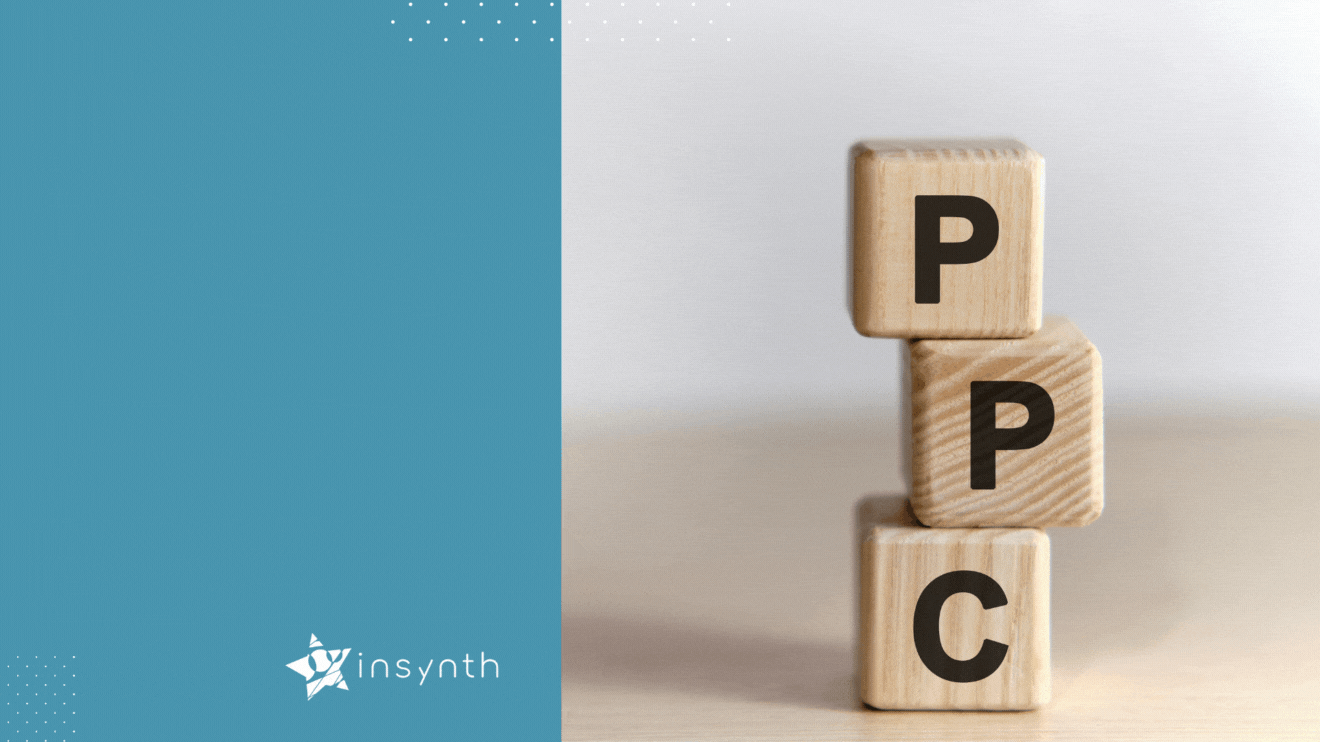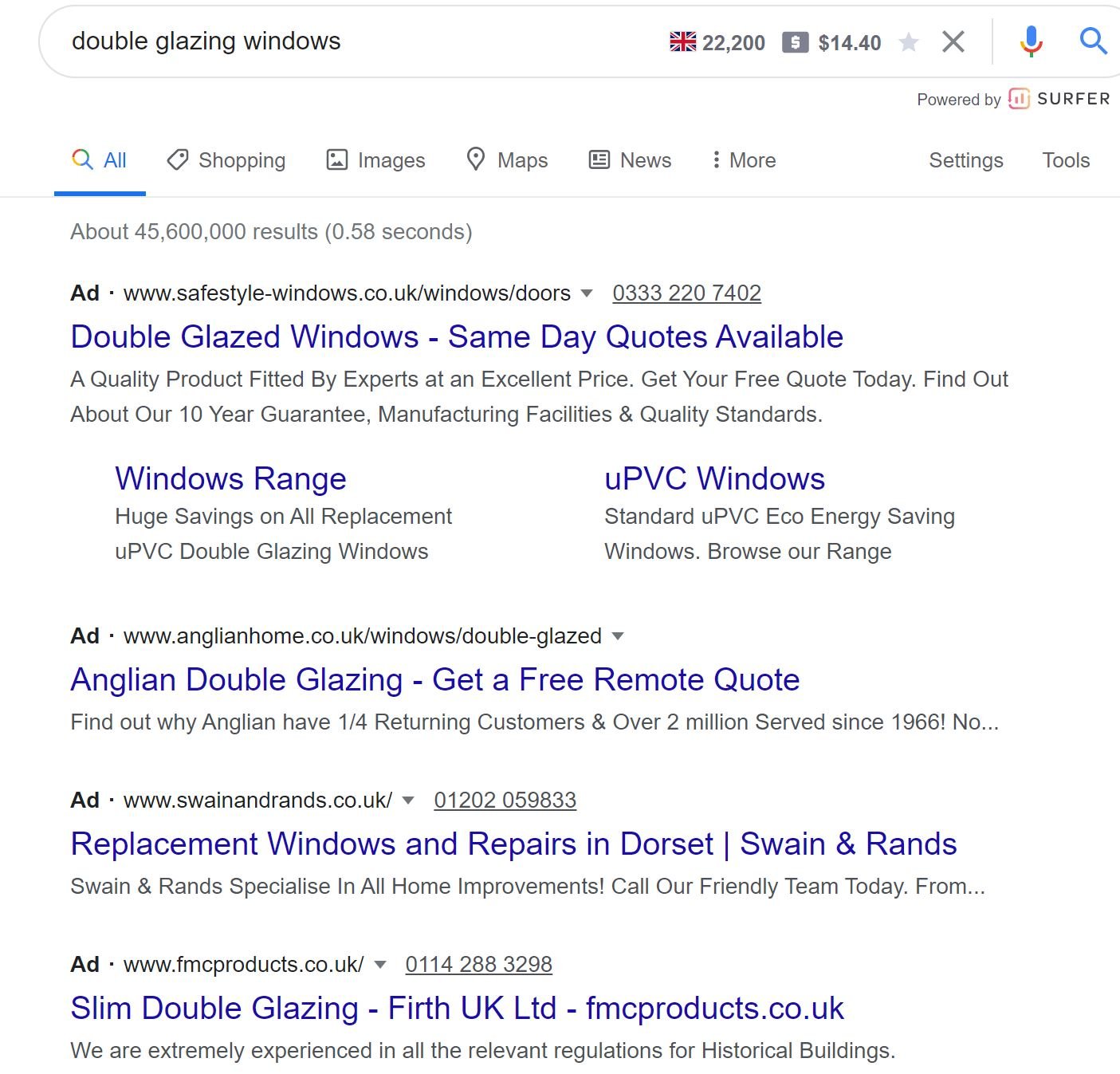
You might be in a position when you need to choose whether your marketing budget is spent on SEO or PPC or even spread between the two.
This can depend on your goals and objectives, the budget and resources you have, the industry and your current performance.
There have been debates around SEO vs PPC for years, as it can be a difficult decision to make. To help you decide on which strategy to use, you need to understand the power of both tactics, the pros and cons of each and choosing the right channel for your business right now.
The Power Of SEO
SEO is all about ranking organically on the search engine results page. These are natural results that are generated when SEO is done right.
The organic results always appear after the paid ads or shopping results. Consider that 30% of all internet users now use ad blockers.
To succeed at driving increased visibility and high-quality relevant traffic, it’s important to understand how to properly optimise your website.
Search engines should be able to crawl your website, understand your content, index it, and show that your site is a significant authority.
There are more than 200 ranking factors used by Google’s Algorithm, therefore a combination of efforts and understanding are needed to win at:
- Technical SEO
- On-Page SEO
- Link Building
- Content Marketing
- Keyword Research
- Meta Data
- and so much more!
Ranking from good SEO isn’t a one-time thing.
The complexity of SEO and the fact that Google’s algorithms are constantly being updated means that it takes the right balance of a multitude of factors for your site to perform well.
By creating the best result on the web for a search query your customers use, you can drive significant volumes of traffic.
The Pros And Cons Of SEO
Like everything, there are pros and cons to SEO. Below is a table demonstrating the main benefits and disadvantages that come with SEO efforts.
.jpg?width=700&name=Pros%20and%20cons%20of%20SEO%20(1).jpg)
The Power Of PPC
PPC relates to paid advertising on search engines, run through Google and Bing Ads. Taking Google as an example, below is a screenshot of how ads appear in search engine results.

As you can see the first 4 results on the page are all adverts. You might see this and think that’s where all the traffic is going but that’s not the case. The average CTR on search ads is about 2%.
This is a huge gap from 32.42% on desktop devices for organically ranking position 1 on Google.
PPC can be used in conjunction with SEO, however, if it is used instead of, when the money stops, you’ll lose all traffic. Find out more about being hooked on PPC.
With PPC there is a lot of things you need to get right to generate high quality leads consistently. The ad itself needs to be managed and monitored with keywords altered depending on results. The landing page itself needs to be prepared for conversion.
Many people have their ad directed to their websites home page. This can be great for traffic but is that traffic converting to leads.
It can be easy for stats to be disguised as vanity metrics. You might see big figures on your website traffic from an ad, but what are the results of that, did you get a sale?
PPC shouldn’t be done on a whim and the area you’re trying to advertise in should be heavily researched.
The Pros And Cons Of PPC
Although not the most sustainable option, PPC can generate results quickly if you have a budget.
Cost per click on some keywords, depending on your industry can be incredibly high, meaning you may only get a few clicks a day. However, if you have a landing page that converts and the cost per lead is working, then it can be an extremely powerful tool.
.jpg?width=700&name=Pros%20and%20cons%20of%20SEO%20(2).jpg)
Choosing The Right Channel For Your Business Right Now
Dependent on your business’ situation, your website and lead generation needs may vary. It can be tricky to decide whether to put more money into PPC or to push SEO. Below are a few scenarios and recommendations.
- If you need results quickly and budget isn’t an issue, choose PPC.
- If you’re already driving sales from other sources and want to maximise your returns in the long run, choose SEO.
- If you’re looking to test a new product or solution, use PPC. It’s easier to get traffic to your website, you can cap it and turn it off whenever you want.
- If you want to accelerate your brand awareness targeting top-of-the-funnel traffic, choose SEO, focus on a solid content strategy.
Conclusion
Throughout writing this blog I’ve tried to think of an analogy to describe PPC vs SEO in a real-life scenario. The best I came up with was renting vs buying a house.
Renting a house is like using PPC, you get in the house quicker, however, you pay a premium for it and it will never be yours. There’s always a risk as you don’t own it. It’s not your property so you could be tossed aside with short or little notice. It’s also harder to save for buying a house when you’re paying a premium to rent.
Buying a house is like using SEO. When you buy a house, it normally takes longer to get in as there are more formalities and technicalities to it. However, you’re in it for the long run, it’s a commitment but it’s yours. You have more power and you’re in control.
In the long run, buying a house is always a better use of your money, however, not everyone has time to save and they might need a place to live in quick. Renting then puts you in an awkward position as you’re tied to paying a monthly fee with no long-term benefits.
Being digital marketing experts, we are huge advocates of SEO, although, PPC, when managed and setup properly can be a powerful lead generation tool. PPC shouldn’t be solely relied on for website traffic as when the money stops so do the leads.
The stats all show that organic traffic generates the most traffic, therefore, SEO can be more powerful that PPC for lead generation. If you need help with increasing traffic to your website or filling your funnel with more leads, book a call below.

